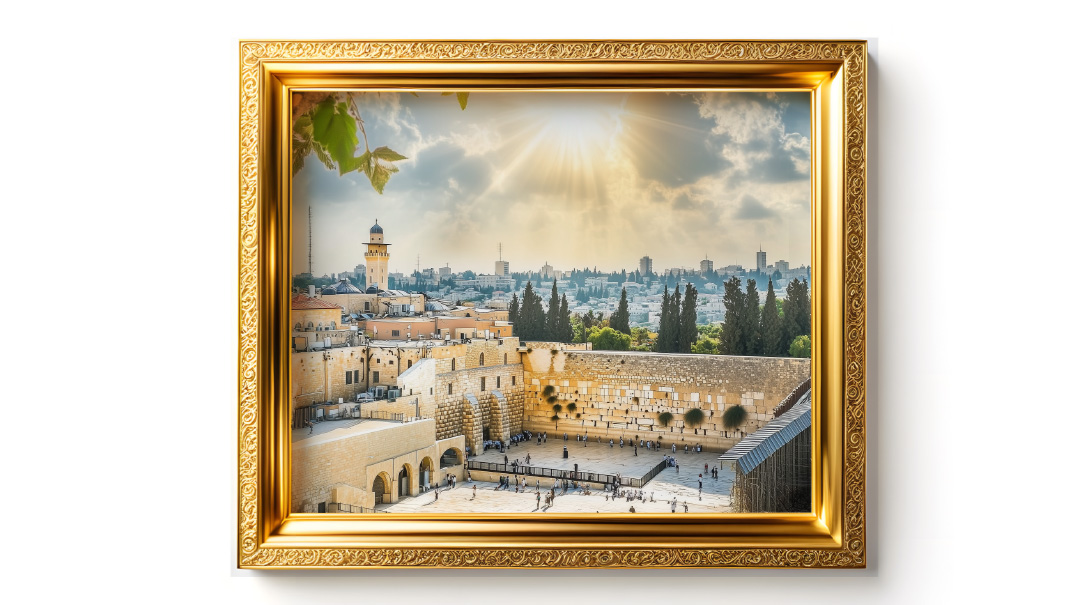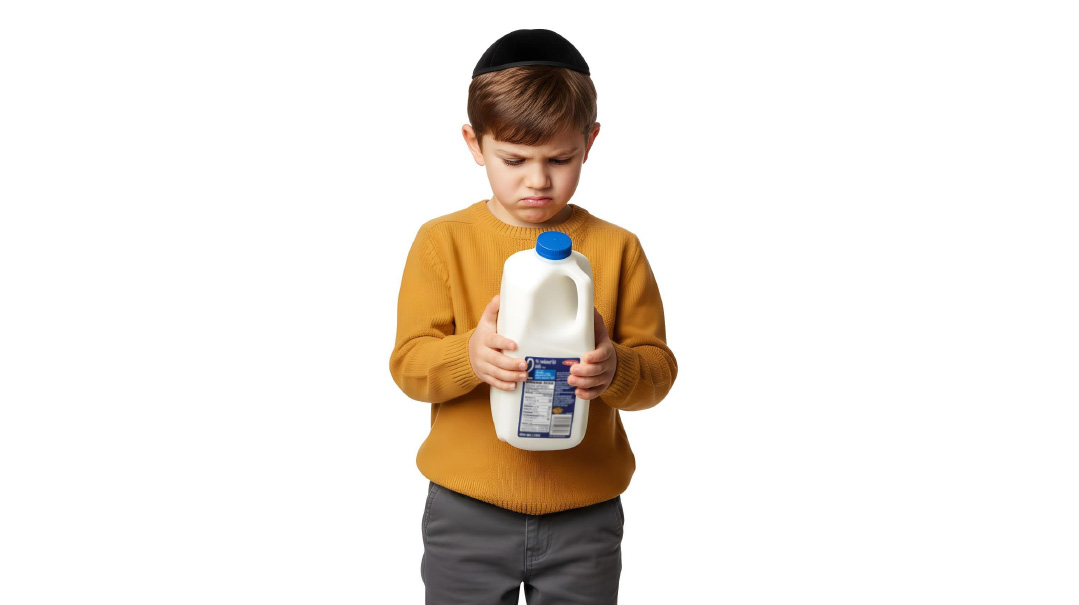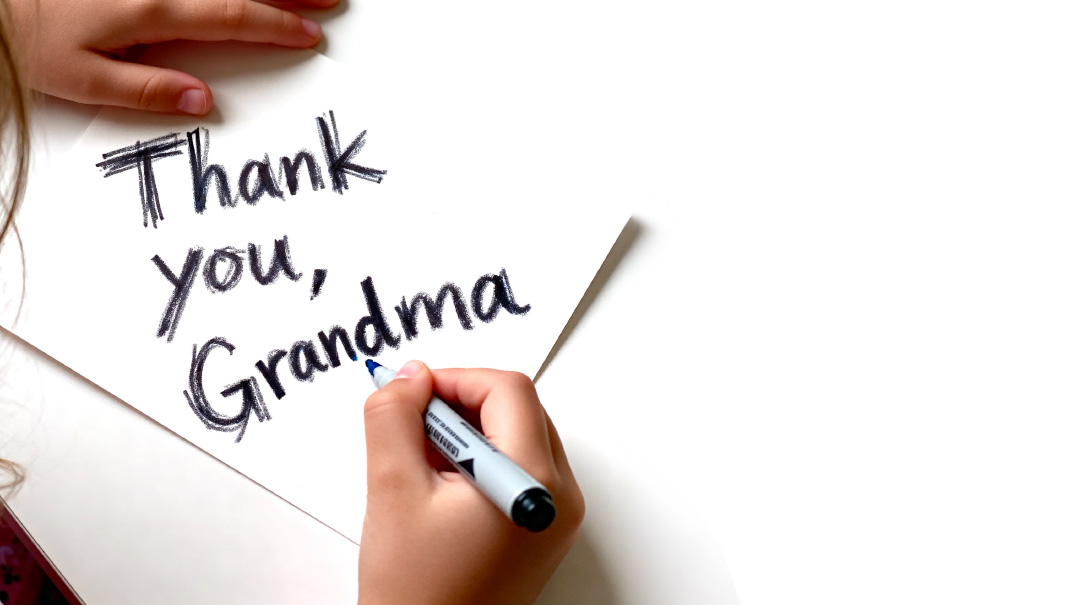The Land of Unknown
| May 6, 2025She prays like she never has, knowing that this place is home

The girl is 12 when she first goes to the Land. Her parents offered her a choice for her bas mitzvah — a party or a trip to Israel. She chose the trip, of course.
The humidity of Tel Aviv hits her when they land, and she gazes in wonder at the white stone in the airport, so different from JFK’s sterile fluorescence. From her cab, she stares wide-eyed at the hills of Jerusalem, lights twinkling in the valleys.
She spends her week trundling down Bar Ilan on the 49a, holding on for dear life while the bus driver punches out change and a woman thrusts a baby at her to hold. This girl hates chaos, but there’s something in this chaos that is magical.
This girl comes from a three-story house with her own massive bedroom and closet. At her cousins’ apartment, she shares a room with six girls on three bunk beds. They happily pull out a trundle for her, take turns making meals, and never close their front door. She is envious of how alive they are, of their sense of purpose, of their ability to let go of the little things. Her life isn’t like that.
Her first time at the Wall that Motzaei Shabbos is nowhere near enough, as she stares up at the stones, the notes in the crevices, the pigeons settled on ledges. She prays like she never has, something inside her knowing that this place is home. And when her flight departs the next day, she cries and says, I want to go back.
The girl babysits weekly for years. Painstakingly, she saves money so that when she is 15, she can return. She travels with classmates who say they love Eretz Yisrael as she does. But she’s surprised at how they spend three weeks eating ice cream when she wants to be at the Kosel. The heat is unreal, the sun blinding, but still, she returns and prays.
Some part of her starts thinking about the future then, watching the kollel couples and children with shining faces. She wants what they have. The peace of Shabbos without cars, the park packed as the sun sets, children squealing and laughing. She knows it’s not perfect — two of her cousins’ neighbors have no school, and financially, it’s tough. But perhaps, she muses, it’s as perfect as things get.
There’s a lightness in her step, a smile in her eyes. She knows she will be back.
It’s over two years later, and the girl is back from seminary, working. Dating and life is complex and she needs a break. She books a trip for Shavuos and remembers, as she lands, why she never wants to leave. The sun is burning hot and she runs around like a headless chicken, but it doesn’t matter. She feels alive. The cheesecake kiddush in the park, the thousands walking to the Wall. Connecting to her nieces and nephews, her cousins, herself. She needs to come back.
She visits frequently after that. She dates, she meets shadchanim, friends move to Jerusalem neighborhoods, and it all grows routine. She becomes a seasoned traveler — quick, efficient, confident. She learns every stop, the Egged schedule, and the best seat to snag a view. She lights Chanukah candles and buys doughnuts and goes to daven again. Already then, people mock her dreams, telling her she’s unrealistic — life in Israel is too hard, too expensive. What about her kids’ chinuch? But she knows she wants this, so she tunes them out. She goes on more dates and davens again that next time, it will be different.
Friends move there and back and the girl gets older. The visits grow poignant as she bumps into women years younger than her, with strollers and babies and lives a heartbeat and a world away from where she is. Her father is terminally ill and she fears what lies ahead, but through it all, there is this, and Him. She extends her ticket and returns to the Wall, wishing she could insist that she will stay there until G-d answers her. But life moves on, and soon she is tearing up again as the Land gets smaller and smaller through her airplane window.
A pandemic comes and goes, stripping the world of lives, while the girl battles to protect her parents from its conniving grasp. The only place she wants to go is closed, so she buys a painting, puts it on her wall. Soon, she tells herself, soon.
The girl’s father gets sicker, and the girl can barely keep up with her work and life and the prognosis hanging over her head. She studies and she works, and books yet another ticket. She cries at the Wall. She runs down the Netanya promenade, the wind and the sun reminding her to smile, her hair whipped into a halo. But she can’t stay, and off she goes again.
Over the next year, everything changes. Her father dies, and she feels exhausted, the grief eating away at everything. As she sits in yet another hotel lobby, she wonders about her dreams and where they’ll go. She comes home deflated and confused as people shout that she’s old and fussy, and she doesn’t know what is true anymore.
The girl learns new things, first losing her footing, but becoming stronger, healthier, gently bouncing back. Come to Israel, people say, but she does not want to. There’s too much to confront — the people who are there and the people who aren’t; what was and what is. There’s a war and her heart is there, crying for the hostages, the fallen, the innocence of children stripped away. But there’s a war and her body is in America. People tell her she must agree to this or that if she wants to get married, and she gets lost in the words, in the hishtadlus, in the questions. She doesn’t know her destiny, she muses, as she returns after more than a year. She doesn’t know anything. Anything that seemed simple is no longer. What do you do when you don’t know? That, the girl knows. Back to the Wall.
She cracks open her siddur and stares at the stones, which still mesmerize her. She stops asking, starts talking, with all the sure and confused and grieving parts inside. I don’t know, she whispers, again and again. I never did know, but I thought I did. And as she looks around the rainbow of women surrounding her, bent and shrunken into submission, she realizes that, like her, maybe this is what this Land really is. A land of unknown.
I don’t know, she whispers, as her plane takes off again, the lapping waves and skyscrapers of Tel Aviv fading behind a fluffy cloud. But You do.
(Originally featured in Family First, Issue 942)
Oops! We could not locate your form.







